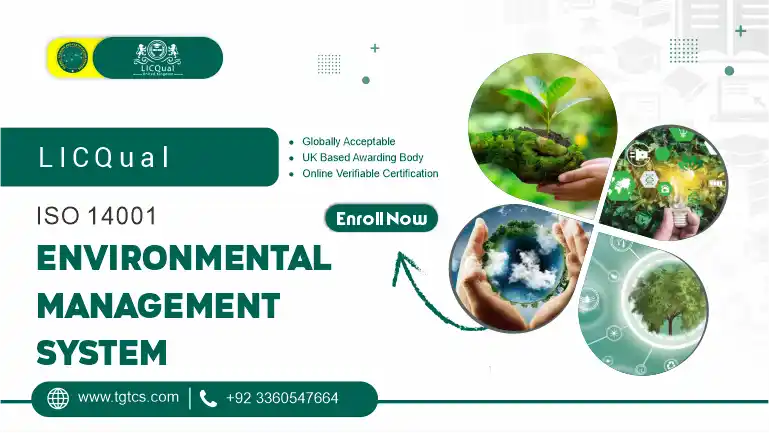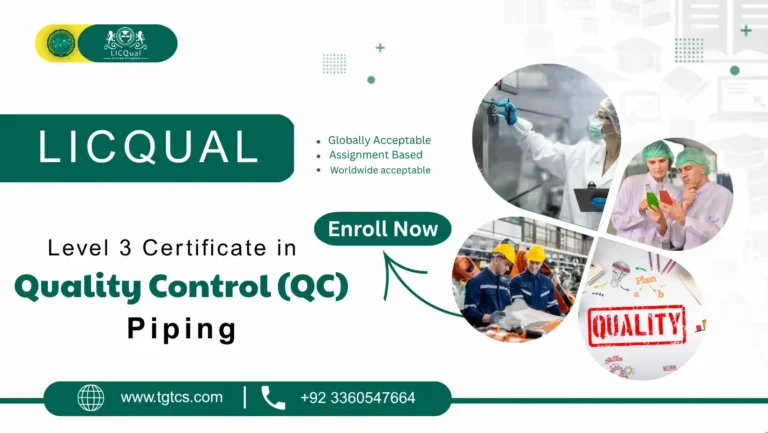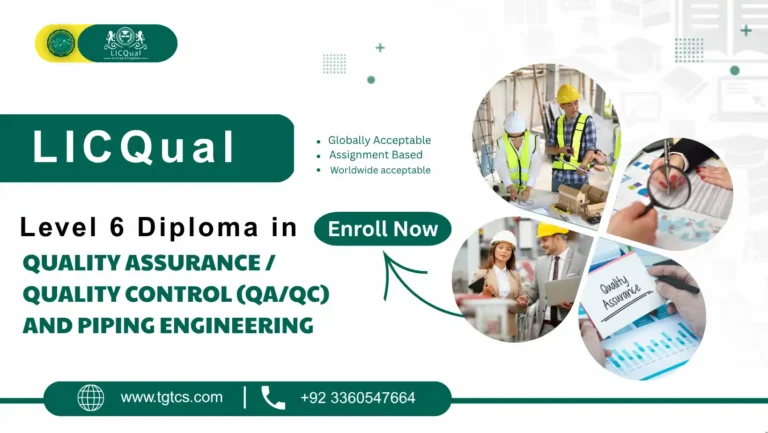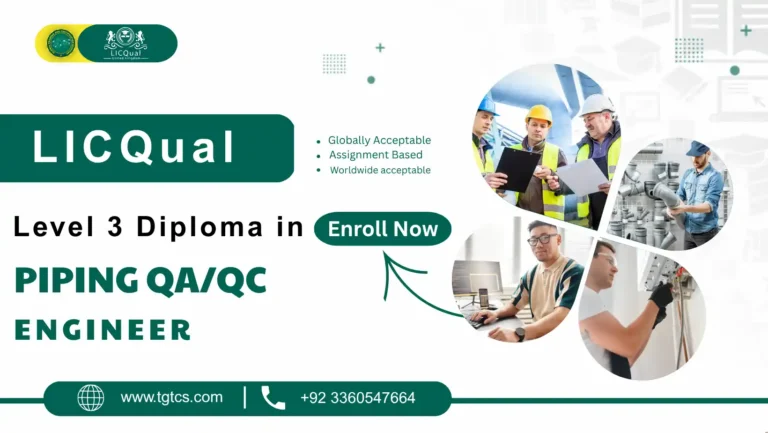LICQual ISO 26000 Social Responsibility
In an increasingly interconnected world, organizations are held to higher standards of social responsibility. The LICQual ISO 26000 Social Responsibility Course offers a comprehensive understanding of the ISO 26000 standard, empowering professionals to implement effective social responsibility practices within their organizations. This course is essential for anyone looking to enhance their corporate social responsibility (CSR) initiatives and contribute positively to society while improving their brand reputation.
ISO 26000 is an internationally recognized standard that provides guidance on social responsibility. Unlike other ISO standards, ISO 26000 is not certifiable but offers a framework for organizations to operate in a socially responsible manner. It covers key areas such as human rights, labor practices, environmental impact, fair operating practices, consumer issues, and community involvement. By adopting these principles, organizations can foster sustainable practices that benefit both society and their bottom line.
Enrolling in the LICQual ISO 26000 Social Responsibility Course is straightforward. Visit the LICQual website, select your preferred learning format, and secure your spot today. Take the first step toward making a positive impact in your organization and the community!
In a world where social responsibility is paramount, the LICQual ISO 26000 course provides essential knowledge and tools for professionals seeking to enhance their organization’s social impact. By mastering the principles of ISO 26000, you can drive meaningful change, foster a culture of responsibility, and contribute to a more sustainable future.
The Global Training and Certification Services (TGTCS) is Directly Approved Training Centre of LICQual
The LICQual ISO 26000 Social Responsibility Course is a comprehensive training program designed to educate professionals on the principles and implementation of the ISO 26000 standard for social responsibility. Unlike traditional ISO standards, ISO 26000 provides guidance on how organizations can operate in a socially responsible manner, addressing key areas such as human rights, labor practices, environmental sustainability, fair operating practices, consumer issues, and community engagement.
Participants will explore the core concepts of social responsibility, learn how to effectively engage stakeholders, and develop strategies to integrate CSR initiatives into their organizational practices. The course emphasizes practical applications and real-world case studies, ensuring that learners can apply their knowledge to create meaningful impact.
Offered in flexible online and in-person formats, this course is suitable for a wide range of professionals, including CSR managers, sustainability experts, business leaders, and anyone involved in governance or stakeholder engagement. Upon successful completion, participants will receive a recognized certification that validates their expertise in social responsibility, enhancing their professional credentials and their organization’s reputation.
By the end of the course, learners will be equipped with the tools and insights necessary to lead and promote social responsibility initiatives, fostering a culture of sustainability and ethical practices within their organizations.
Upon completing the LICQual ISO 26000 Social Responsibility Course, participants will be able to:
- Understand ISO 26000 Principles: Articulate the key principles and core subjects of the ISO 26000 standard, including human rights, labor practices, and environmental sustainability.
- Assess Organizational Impact: Evaluate their organization’s current practices related to social responsibility and identify areas for improvement.
- Engage Stakeholders Effectively: Develop strategies for engaging and communicating with stakeholders to understand their needs and expectations regarding social responsibility.
- Implement CSR Strategies: Design and implement effective corporate social responsibility (CSR) initiatives that align with organizational goals and stakeholder interests.
- Measure and Report Performance: Utilize appropriate tools and methodologies to measure and report on the effectiveness of social responsibility efforts.
- Integrate Social Responsibility into Culture: Foster a culture of social responsibility within the organization by promoting awareness and encouraging employee participation.
- Navigate Ethical Challenges: Identify and address ethical dilemmas related to social responsibility, ensuring that the organization acts in a fair and just manner.
- Promote Sustainable Practices: Advocate for sustainable practices that minimize environmental impact and promote social well-being within the community.
- Benchmark Against Best Practices: Compare their organization’s social responsibility initiatives with industry best practices to identify opportunities for enhancement.
- Create an Action Plan for Continuous Improvement: Develop a personalized action plan for implementing and advancing social responsibility initiatives within their organization.
Mandatory Units
The course is structured into the following study units:
- Introduction to ISO 26000: Overview of the standard, its scope, and its importance in today’s business landscape.
- Fundamental Principles of Social Responsibility: Examination of key principles such as accountability, transparency, ethical behavior, and respect for stakeholder interests.
- Core Subjects of Social Responsibility: Exploration of seven core subjects including organizational governance, human rights, labor practices, environment, fair operating practices, consumer issues, and community involvement.
- Guidance on Implementation: Practical guidance on integrating social responsibility into organizational processes, decision-making, and performance measurement.
- Case Studies and Best Practices: Analysis of real-world case studies and best practices to illustrate successful implementation of ISO 26000 principles across diverse industries and contexts.
The Course Benefits of ISO 26000 Social Responsibility are as:
Comprehensive Understanding: Gain in-depth knowledge of the ISO 26000 standard and its principles, enabling you to effectively implement social responsibility practices in your organization.
Expert-Led Instruction: Learn from experienced instructors with real-world expertise in corporate social responsibility and sustainability, providing valuable insights and practical applications.
Recognized Certification: Receive a certification upon completion that validates your understanding and commitment to social responsibility, enhancing your professional credentials and marketability.
Practical Skills Development: Acquire actionable skills to assess, develop, and implement effective CSR strategies tailored to your organization’s unique needs.
Enhanced Organizational Reputation: Learn how to improve your organization’s reputation by demonstrating a commitment to ethical practices and social responsibility, building trust with stakeholders.
Risk Mitigation: Understand how to identify and address social and environmental risks, helping to protect your organization from potential liabilities and negative publicity.
Stakeholder Engagement: Develop strategies for effectively engaging with stakeholders, ensuring that their needs and expectations are incorporated into your social responsibility initiatives.
Competitive Advantage: Position your organization as a leader in social responsibility, appealing to socially conscious consumers and attracting top talent.
Networking Opportunities: Connect with other professionals in the field of social responsibility, fostering valuable relationships and knowledge-sharing.
Framework for Continuous Improvement: Establish a solid foundation for ongoing assessment and enhancement of your organization’s social responsibility initiatives, driving long-term positive impact.
The LICQual ISO 26000 Social Responsibility Course is designed for a diverse audience of professionals who are committed to enhancing social responsibility within their organizations. The ideal learner includes:
- Corporate Social Responsibility (CSR) Managers: Professionals responsible for developing and overseeing CSR initiatives and strategies within their organizations.
- Sustainability Officers: Individuals focused on integrating sustainable practices into business operations and promoting environmental stewardship.
- Business Leaders and Executives: Decision-makers who want to understand the strategic importance of social responsibility and its impact on organizational success.
- Marketing and Communications Professionals: Those tasked with promoting the organization’s social responsibility efforts and enhancing brand reputation through effective messaging.
- Human Resources Managers: Professionals looking to foster a culture of social responsibility within their workforce and enhance employee engagement in CSR initiatives.
- Nonprofit and NGO Representatives: Individuals working in organizations that focus on social issues and community engagement, seeking to align their efforts with best practices in social responsibility.
- Students and Recent Graduates: Individuals pursuing careers in business, sustainability, or related fields who wish to gain a foundational understanding of social responsibility principles.
- Policy Makers and Government Officials: Professionals involved in developing regulations and policies related to social responsibility and sustainability.
- Consultants and Advisors: Experts who provide guidance to organizations on CSR strategies and practices, looking to enhance their knowledge of the ISO 26000 framework.
- Anyone Passionate About Social Impact: Individuals who are committed to making a positive difference in their communities and organizations and wish to learn how to effectively implement social responsibility practices.
The ideal learner is motivated to drive meaningful change, values ethical practices, and seeks to integrate social responsibility into their organization’s culture and operations. Regardless of experience level, all learners will benefit from the course’s comprehensive approach to ISO 26000 and its application in real-world settings.
Course Overview
Standard Course
ISO 26000
Course Units
05 Mandatory Units
Duration
2 to 3 Weeks






